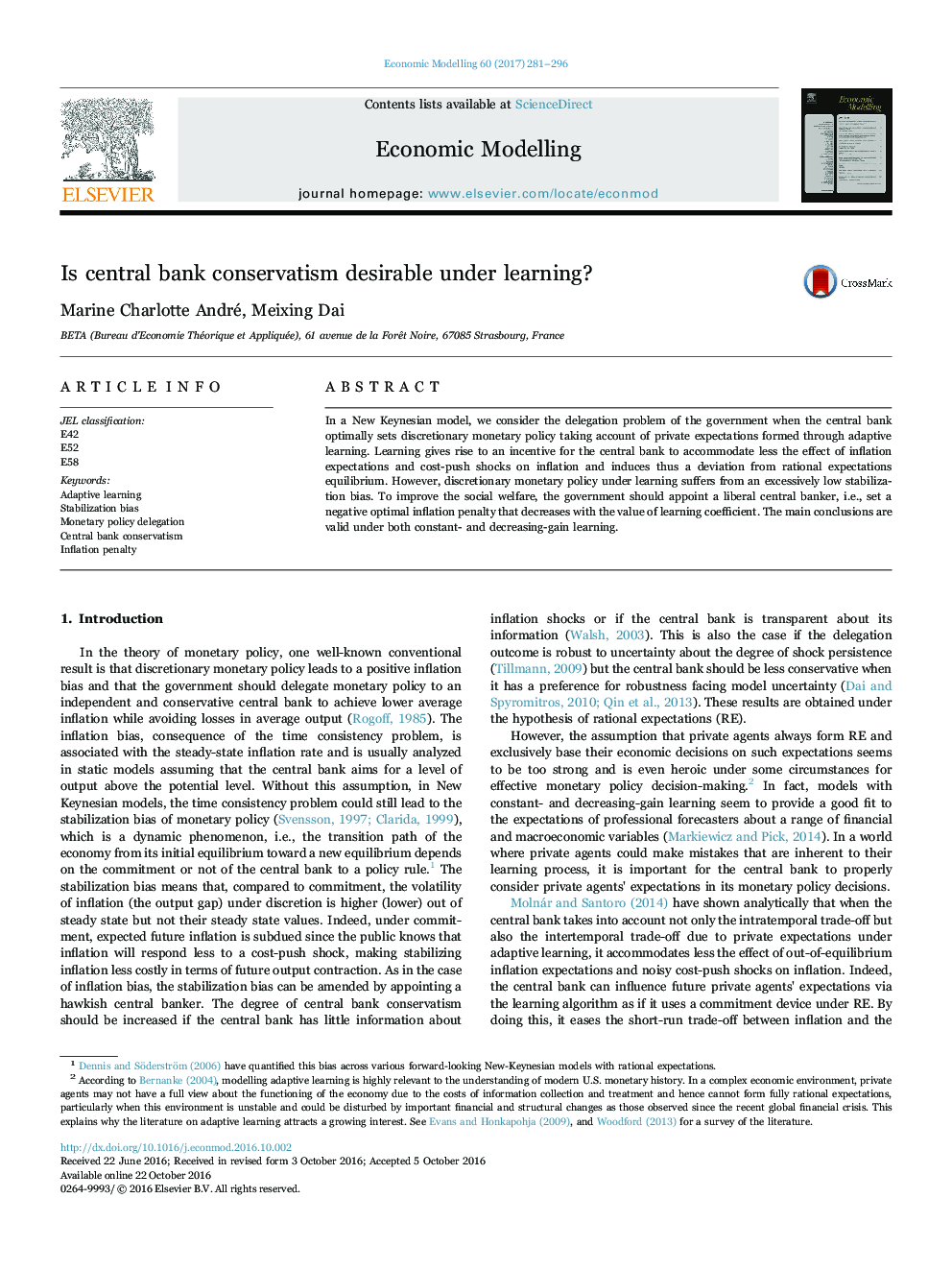| Article ID | Journal | Published Year | Pages | File Type |
|---|---|---|---|---|
| 5053206 | Economic Modelling | 2017 | 16 Pages |
â¢Adaptive learning affects the monetary policy delegation problem of the government.â¢Learning incites the central bank to accommodate less the effect of inflation shocks.â¢Learning induces a distortion compared to rational expectations equilibrium.â¢Monetary policy discretion under learning suffers from a too low stabilization bias.â¢Appointing a liberal central banker improves the social welfare.
In a New Keynesian model, we consider the delegation problem of the government when the central bank optimally sets discretionary monetary policy taking account of private expectations formed through adaptive learning. Learning gives rise to an incentive for the central bank to accommodate less the effect of inflation expectations and cost-push shocks on inflation and induces thus a deviation from rational expectations equilibrium. However, discretionary monetary policy under learning suffers from an excessively low stabilization bias. To improve the social welfare, the government should appoint a liberal central banker, i.e., set a negative optimal inflation penalty that decreases with the value of learning coefficient. The main conclusions are valid under both constant- and decreasing-gain learning.
